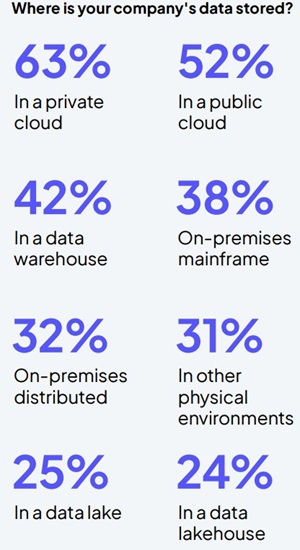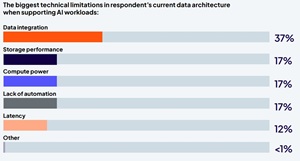
New Report Explores How Enterprises are Scaling AI Initiatives — Campus Technology
New Report Explores How Enterprises are Scaling AI Initiatives
Cloud infrastructure is central to the shift from AI experimentation to AI integration, according to a new report from Cloudera on enterprise AI adoption. The report, in conjunction with previous company studies, illustrates how enterprises are scaling AI initiatives across hybrid environments while navigating challenges of security, governance, and data access.
“In just the past year, artificial intelligence (AI) has surged from a strategic priority to an urgent mandate for business leaders,” is the opening line of the study. “No longer confined to pilot programs or future forecasts, AI is now reshaping operations, redefining workflows and rewriting the rules of competition. IT leaders now see AI not just as a tool, but as a force multiplier — capable of unlocking hidden opportunities, accelerating efficiencies, and empowering our workforce hungry for the next era of productivity.”
AI Adoption Now Mainstream
Titled “The Evolution of AI: The State of Enterprise AI and Data Architecture,” Cloudera’s brand-new survey of more than 1,500 IT leaders reveals that 96% of enterprises have integrated AI into core business processes, up from 88% in 2024. Of these, 21% said AI was fully embedded, and 54% reported significant integration. Respondents noted real returns, with 52% reporting measurable business value and only 1% not seeing results.
About that 96% figure, a related Cloudera news release published Sept. 25 said: “This is up from 2024, when 88% of survey respondents said they were currently using AI within their companies. This indicates that AI has gone from experimentation to full integration in core processes and workflows. And it’s paying off: 70% of respondents said they have achieved significant success with AI initiatives, with only 1% having yet to see results.”
Hybrid Cloud Data Architectures
Cloud choices are shaping AI strategies. The survey found that 63% of organizations store data in private cloud, 52% in public cloud, and 42% in data warehouses. Many enterprises also continue to rely on on-premises systems, including mainframes (38%) and distributed environments (32%). Nearly one-quarter reported using data lakehouses, with efficiency and governance cited as key benefits.
This hybrid approach is seen as critical for scaling AI. When asked about its advantages, respondents cited security (62%), improved data management (55%), and improved analytics (54%). Cloudera noted that success hinges on being able to “bring AI to data wherever it resides — public cloud, private cloud, and on-premises — while ensuring full governance, lineage, and trust.”
Technical and Security Challenges
Enterprises reported persistent technical hurdles. Data integration was identified as the top limitation (37%), followed by storage performance, compute power, and lack of automation (each 17%). Cost pressures have also grown: 42% of IT leaders now cite training compute costs as too high, up from 8% last year.
Source link





